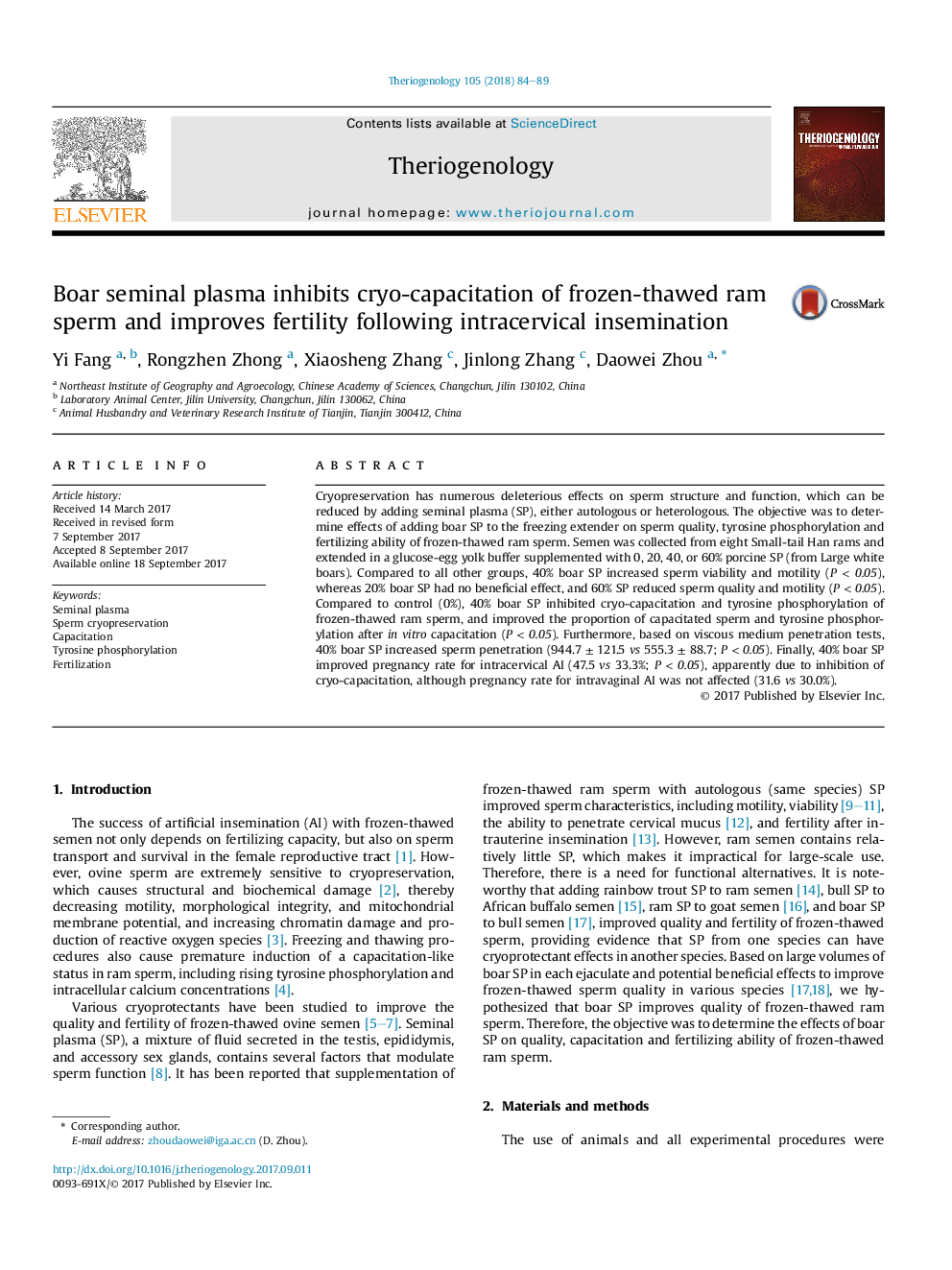| کد مقاله | کد نشریه | سال انتشار | مقاله انگلیسی | نسخه تمام متن |
|---|---|---|---|---|
| 5523020 | 1546064 | 2018 | 6 صفحه PDF | دانلود رایگان |
- 40% boar SP increased frozen-thawed ram sperm quality and motility.
- 40% boar SP improved intracervical AI result, but intravaginal AI was not affected.
- Improving sperm quality and fertilization probably due to inhibit cryo-capacitation.
- Excessive (>60%) boar SP has negative effects.
Cryopreservation has numerous deleterious effects on sperm structure and function, which can be reduced by adding seminal plasma (SP), either autologous or heterologous. The objective was to determine effects of adding boar SP to the freezing extender on sperm quality, tyrosine phosphorylation and fertilizing ability of frozen-thawed ram sperm. Semen was collected from eight Small-tail Han rams and extended in a glucose-egg yolk buffer supplemented with 0, 20, 40, or 60% porcine SP (from Large white boars). Compared to all other groups, 40% boar SP increased sperm viability and motility (P < 0.05), whereas 20% boar SP had no beneficial effect, and 60% SP reduced sperm quality and motility (P < 0.05). Compared to control (0%), 40% boar SP inhibited cryo-capacitation and tyrosine phosphorylation of frozen-thawed ram sperm, and improved the proportion of capacitated sperm and tyrosine phosphorylation after in vitro capacitation (P < 0.05). Furthermore, based on viscous medium penetration tests, 40% boar SP increased sperm penetration (944.7 ± 121.5 vs 555.3 ± 88.7; P < 0.05). Finally, 40% boar SP improved pregnancy rate for intracervical AI (47.5 vs 33.3%; P < 0.05), apparently due to inhibition of cryo-capacitation, although pregnancy rate for intravaginal AI was not affected (31.6 vs 30.0%).
Journal: Theriogenology - Volume 105, 1 January 2018, Pages 84-89
